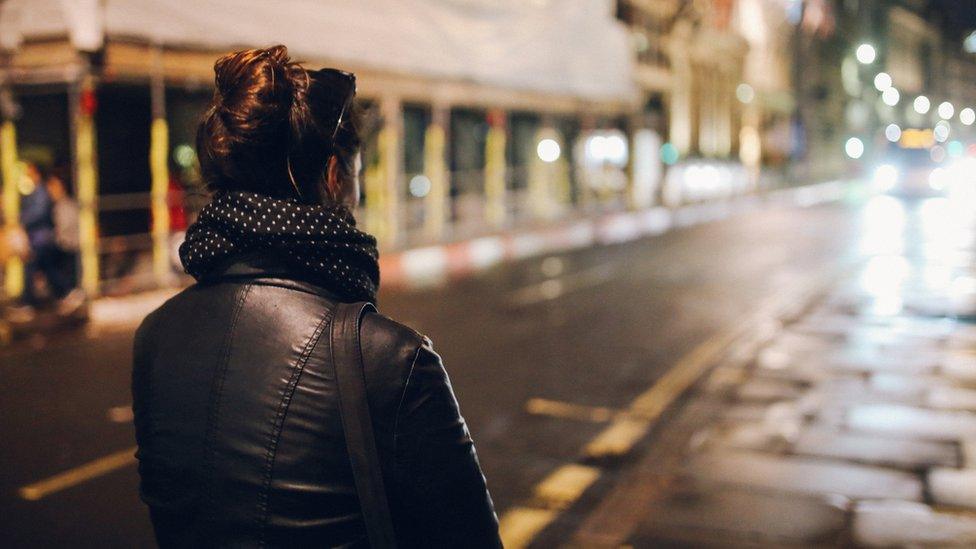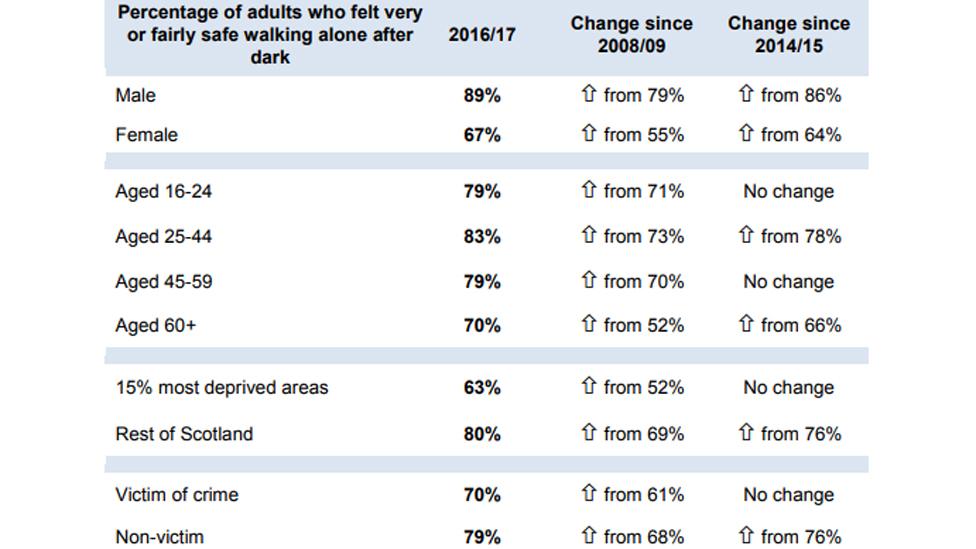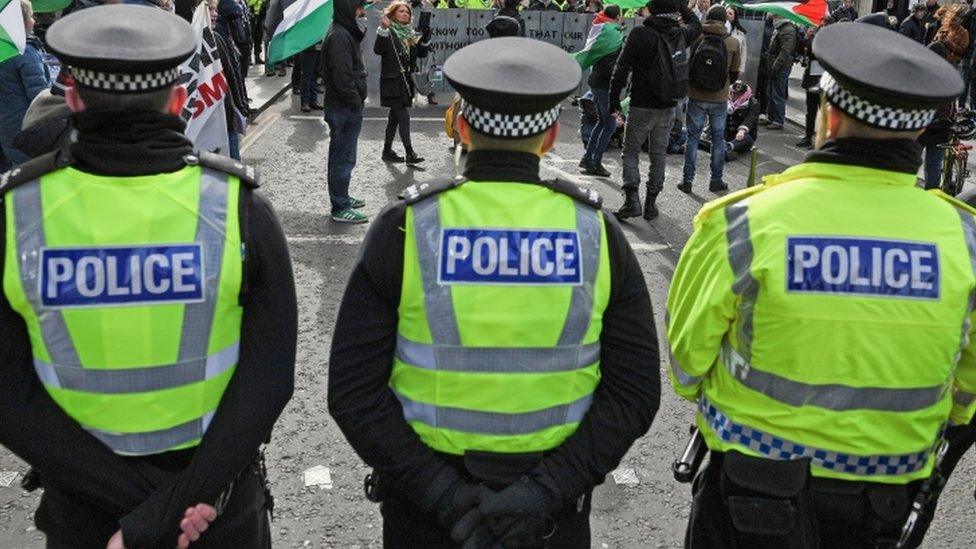Scots 'feel safer than ever before'
- Published
- comments

Women are still more likely than men to feel unsafe walking alone after dark
People in Scotland feel safer walking alone at night than ever before, according to a major crime survey.
The Scottish Crime and Justice Survey, external said 77% of adults felt safe or very safe in their neighbourhood after dark, the highest ever recorded by the study.
The results were lower for women and those living in the most deprived areas - but those groups still felt much safer on average than a decade ago.
The survey estimated that overall crime has fallen by a third since 2008/09.
Just 13% of the population experienced crime in 2016/17, down seven percentage points since 2008/09.
And three quarters of the 5,600 people questioned said they believed crime levels in their local area were either improving or staying the same.
This was unchanged from the last survey in 2014/15, but an improvement from 65% in 2006.
Of the estimated 712,000 crimes experienced by adults in Scotland last year, 481,000 were classed as being property crimes - a decrease of 34% since 2008/09.
Violent crimes
There were an estimated 231,000 violent crimes in 2016/17, which was a 27% drop since 2008/09.
The figures in both categories were broadly similar to those recorded by the last survey in 2014/15.
The vast majority of violent crime incidents (72%) were minor assaults which resulted in no or negligible injury, and only 15% were thought to have involved weapons.
Victimisation rates were higher among young adults aged 16-24 (5.3%), people in the most deprived areas of Scotland (4.8%) and those living in urban locations (3.2%).
But all of these groups were less likely to experience violent crime last year than they had been a decade ago, with the proportion of younger adults experiencing violent crime less than half of what it was in 2008/09.

Scotland's justice secretary, Michael Matheson, welcomed the results but warned against complacency despite official crime figures being at a 43-year low.
He said there would be continued investment in crime prevention measures and new violence research, with the survey highlighting that a very small minority of adults continued to experience "repeat victimisation" both from property crime and violent crime.
The survey showed that 1.1% of adults suffered violence more than once, accounting for two-thirds of such crime.
Mr Matheson added: "A better understanding of the nature and circumstances of violence can help improve how not only the justice system but wider public services pre-empt and respond to the issue.
"We must keep identifying those areas where we can most effectively focus our collective efforts to achieve the greatest impact, ensuring all our communities benefit from falling crime."
The Scottish Crime and Justice survey asks people about their experiences and perceptions of crime, and is important because it includes crimes that have not been reported to, or recorded by, the police and captured in police recorded crime statistics.


Public perceptions of the police were marginally lower than five years ago, the survey suggested
What else did the survey find?
The results suggested the public was generally fairly confident about the operation of the justice system, with 78% sure it allows for a fair trial.
However, less than half (47%) were confident about its efficiency and just 39% thought appropriate punishments were given to offenders.
A majority (58%) said the police were doing a good or excellent job in their local area, a percentage which has remained unchanged since 2014/15 but has fallen from 61% in 2012/13.
Almost a quarter (23%) thought community relations with the police in their area were poor, and a fifth (21%) believed officers were not dealing with the important issues in their local area. offenders.
Victims of crime and those living in the most deprived areas of Scotland were less likely to have confidence in the justice system and to say that the police were doing a good or excellent job.